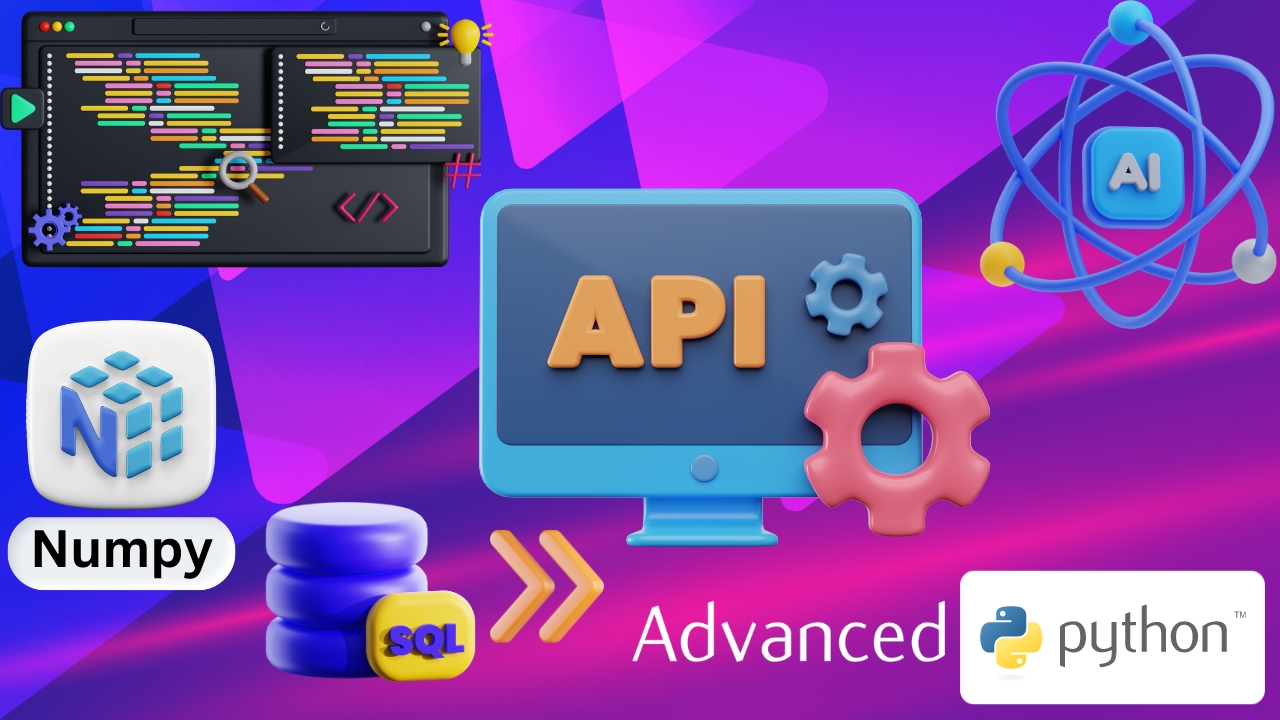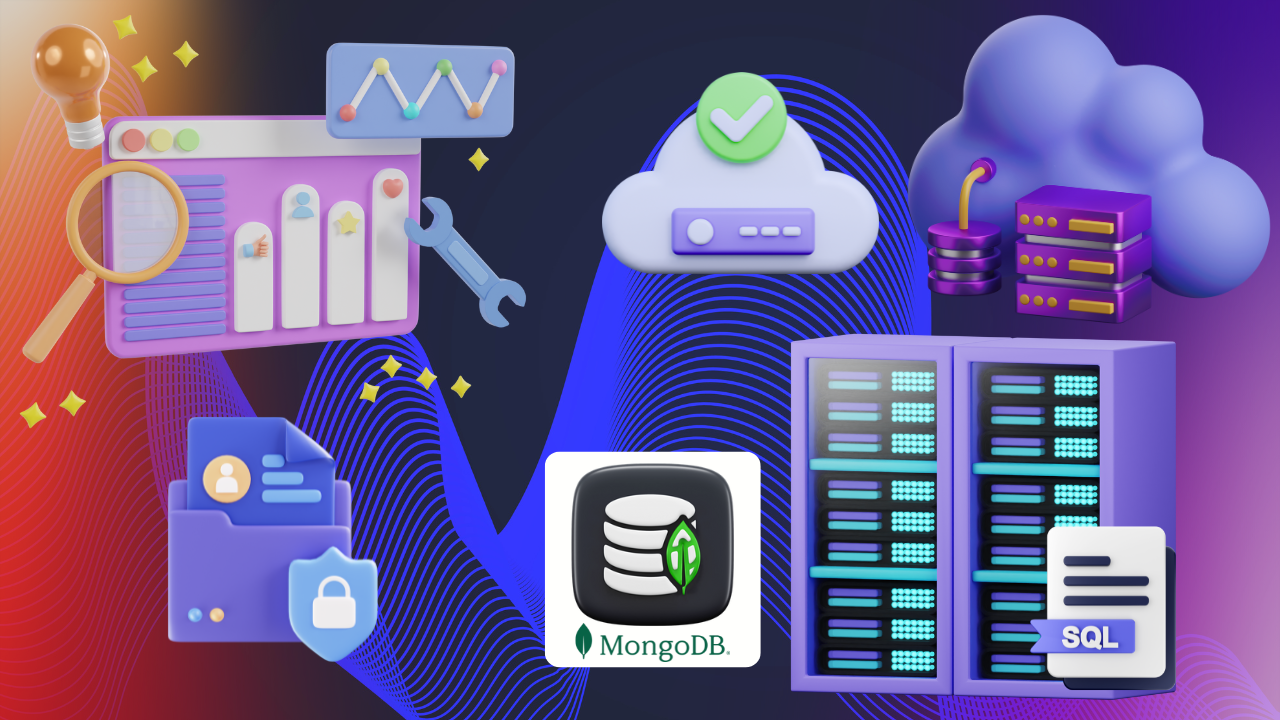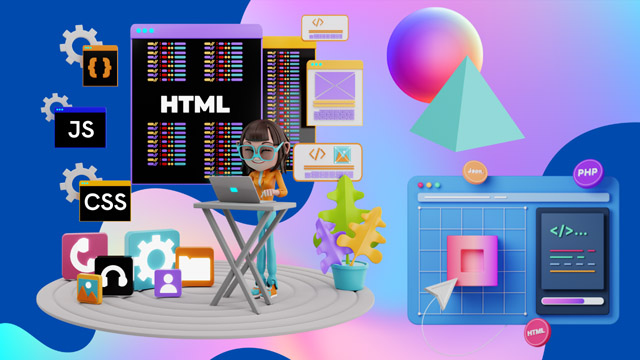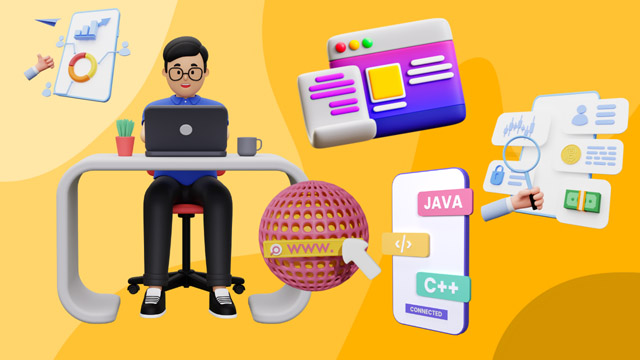-
The goal of this course is to enable learners to promptly start coding by providing an introduction to the many tools, packages, modules, and libraries available for writing and running various Python codes. In this course, you'll get practical programming expertise and get ready for a rewarding future as a Python Programmer.
- Work on real-world projects to earn your python certification and gain practical experience.

Python
This course provides not only an introduction to Python programming but also gives deep knowledge of Data science, AI/ML along with web frameworks like Flask and Django
Introduction
Who Should Join
- Learners studying computer science, engineering, or related fields who want to master Python for academic and project work.
- Job Seekers seeking a career in software development, data science, web development, or automation who needs Python skills to enhance their resume.
- Beginners new to programming who want to start learning Python, a user-friendly and versatile language.
- Software Developers looking to expand their skillset with Python for tasks like scripting, web development, and data analysis.
- Data Scientists and Analysts interested in using Python for data manipulation, machine learning, and data visualization.
- Web Developers interested in creating dynamic websites using Python frameworks such as Django and Flask.
- Aspiring Game Developers looking to learn game development basics with PyGame, including creating interactive games.
What you'll learn ?
-
Basics of Python Programming like Data types, Variables, Conditional statements, Loops, Functions, File handling, Regular expression, OOPs and many other concepts of Python.
-
Introduction to Web frameworks like Flask and Django which covers basics and the advanced concepts like writing Python scripts, File operations in Python, working with Databases, creating Views, Templates, Forms, Models, and REST APIs.
-
This course also provides deep knowledge about the most in-demand skills in industry that is Data science and AI/ML.
- To master Web Frameworks, Data Science, and AI/ML with Python, we have offered knowledge of front-end technologies like HTML,CSS and Databases like MySQL as well.
Certification
- KLiC courses are recognised by Yashwantrao Chavan Maharashtra Open University (YCMOU).
- MKCL provides certificate to the KLiC learner after his/her successful course completion.
- Yashwantrao Chavan Maharashtra Open University (YCMOU) provides mark sheet to successfully passed KLiC learners (Jurisdiction: Maharashtra).
Academic Approach
The academic approach of the courses focuses on the “work-centric” education i.e. begin with work (and not from a book!), derive knowledge from work and apply that knowledge to make the work more wholesome, useful and delightful. The ultimate objective is to empower the Learner to engage in socially useful and productive work. It aims at leading the learner to his/her rewarding career as an employee or entrepreneur as well as development of the community to which s/he belongs. Learning methodology:
- Step -1: Learners are given an overview of the course and its connection to life and work.
- Step -2: Learners are exposed to the specific tool(s) used in the course through the various real-life applications of the tool(s).
- Step -3: Learners are acquainted with the careers and the hierarchy of roles they can perform at workplaces after attaining increasing levels of mastery over the tool(s).
- Step -4: Learners are acquainted with the architecture of the tool or tool map so as to appreciate various parts of the tool, their functions, utility and inter-relations.
- Step -5: Learners are exposed to simple application development methodology by using the tool at the beginner’s level.
- Step -6: Learners perform the differential skills related to the use of the tool to improve the given ready-made industry-standard outputs.
- Step -7: Learners are engaged in appreciation of real-life case studies developed by the experts.
- Step -8: Learners are encouraged to proceed from appreciation to imitation of the experts.
- Step -9: After the imitation experience, they are required to improve the expert’s outputs so that they proceed from mere imitation to emulation.
- Step-10: Emulation is taken a level further from working with differential skills towards the visualization and creation of a complete output according to the requirements provided. (Long Assignments)
- Step-11: Understanding the requirements, communicating one’s own thoughts and presenting are important skills required in facing an interview for securing a work order/job. For instilling these skills, learners are presented with various subject-specific technical as well as HR-oriented questions and encouraged to answer them.
- Step-12: Finally, they develop the integral skills involving optimal methods and best practices to produce useful outputs right from scratch, publish them in their ePortfolio and thereby proceed from emulation to self-expression, from self-expression to self-confidence and from self-confidence to self-reliance and self-esteem!
Syllabus
- What is Python
- Python history
- Versions of Python
- Features of Python
- Limitations of Python
- Scripting language vs programming language
- Applications of Python
- Python2 vs Python 3
- What is Python used for?
- Flavours of Python
- Python compared to other languages
- Python vs Java
- How Python works? What is byte code and pycache?
- What is PVM
- Compiler vs interpreter
- Compile time vs runtime
- Future Scope of Python and career opportunity
- What is Memory Management
- Three areas of Memory Management
-
- Memory management at Hardware level
-
- Memory management at OS level
-
- Memory management at Application level
- How important is memory management
- What is Memory management in Python
- Python memory allocation - Static memory and Dynamic memory
- 2 parts of memory - Stack and Heap
- Garbage collector
- Reference counting in Python
- Transfering the garbage collector
- Importance of Performing Manual Garbage Collection
- Python Memory Management
- Common Ways to Reduce the Space Complexity
- Python Installation on windows
- Check Python version on windows
- Verify Python is installed?
- Verify pip was installed?
- What is IDLE and editors
- How to run Python program using IDLE
- How to install visual studio
- Executing Python program
- Identifiers and rules to write identifiers
- Constants and variables
- Keywords or reserved keywords
- Python comments
- Python syntax
- Lines and Indentation
- Python user input
- Text Data Type
- Numeric Types
- Sequence Type
- Mapping Types
- Set Types
- Boolean Types
- Binary Types
- None Type
- Type Casting
- Operators in Python
- Arithmetic Operators
- Assignment Operators
- Comparison Operators
- Logical Operators
- Identity Operators
- Membership Operators
- Bitwise Operators
- Precedence and Associativity of Operators
- Ternary Operator
- Arithmetic operators simulation
- Assignment operators simulation
- Comparison operators simulation
- Logical operators
- Identity operators simulation
- Membership operators simulation
- Bitwise operators simulation
- Precedence and Associativity of Operators
- Ternary operator
- What are control flow statements in Python?
- Decision control statements
- Python conditions and indentation
-
- simple if flow
-
- if else flow
-
- nested If flow
-
- if elif else flow
-
- elif ladder
-
- short hand if, if else flow
- Multiple conditions in if using and or operator
- What other languages do? Which one is better?
- Transfer statements
- Break
- Continue
- Pass
- Iterative statement
- For
- While
- Pattern programs
- Data Types in brief
- How to access String and Indexing?
- String Slicing
- Mutable and Immutable
- Mathematical Operators for String (+,*)
- Comparison of String
- String Membership
- Format String
- Escape Character
- Removing Spaces from String
- Finding Substring
- Counting Substring and Len()
- Replacing a String
- Splitting and Joining of String
- Changing Case of a String
- Checking starting and ending part of the String
- Methods to check type of Characters present in String
- List and its Creation
- Accessing Elements of List
- List Mutability
- List Traversing
- Functions of List
- Manipulating List
- append()
- insert()
- extend()
- remove()
- Ordering Elements of List
- Aliasing and Cloning of List Object
- Use of Mathematical Operators for List
- Comparison and Membership Operators
- Nested List
- List Comprehension
- What is Tuple
- Creating a Tuple
- Accessing through Tuple
- Tuple Methods
- Mathematical and Membership Operators
- Iterating through Tuple
- Updating Tuple
- Nesting of Tuple
- Tuple Comprehension
- Unpack Tuple
- Difference between Tuple and List
- Zipping of Tuples
- Creating Sets
- Modifying Sets
- Removing Elements from set
- Python set Operation
- Set Method
- Built in Functions
- Set Comprehension
- Frozen Sets
- How to create Dictionary
- Accessing Dictionary
- Update Dictionary
- Delete the elements from dictionary
- Python dictionary methods
- Membership and iterating through in dictionary
- Important functions in dictionary pt1
- Dictionary Comprehension
- Nested Dictionary
- Built in Functions
- User Defined Function
- Docstrings
- Calling a function in python
- Types of Arguments
- Variable Length Arguments
- Scope of variables
- Types of Variables
- Recursive Functions
- Namespaces
- Nested Functions
- Benefits of functions
- Anonymous function
- Lambda Function in detail
- filter, map and reduce function
- map()
- reduce()
- properties of function
- Decorators
- Chaining Decorators
- Magic Method
- Iterables
- Iterator and Iterations
- Yield Keyword
- Generators
- Iterators vs Generators
- Python Generator expression
- What is Module
- Module aliasing
- Various possibilities of import
- Reloading a module
- Finding members of module by using dir()
- The special variable name
- What is package
- init.py
- What is library
- Random module
- Math module
- Python Imaging Library (PIL)
-
- MoviePy
-
- pyscreenshot
- Date Class
- Time Class
- Date Time Class
- Time Delta class
- Open File
- Properties of Files
- Read & Write Operation
- Seek and tell method
- OS Module
- Working with Directories
- Handling binary data
- CSV Files
- Zip and Unzip
- Types of Errors
- Exception
- Exception Handling Hierarchy
- Customized Exception Handling
- Control Flow in Try and Except
- Multiple Exceptions
- Default Exception
- Finally Block
- Control Flow in try except and finally
- Else with try except finally
- Types of Exception
- Assert Keyword
- Python Loggers
- What is log and log file in programming?
- Levels of log messages
- Using basicConfig
- Formatting
- Classes and functions
- Logging Handlers
- Stream Handlers
- File Handlers
- Working with Handlers
- Exception Information
- JSON
- Json
- JSON Syntax
- Datatypes in JSON
- Read ,Write and Parse JSON
- Python Object Conversions
- Python to JSON
- Formatting the results
- Serializing
- Parse JSON
- Deserialize
- Pickling & Unpickling
- What is Reg ex
- Character Classes
- Quantifiers
- Functions of Re-Module
- Find all methods - Important functions of re module
- Symbols
- Web scrapping using reg exp
- Multitasking
- Difference between Multiprocessing and multi-threading
- Difference between Process and Thread
- Ways of creating thread in python
- Difference in program with and without Multithreading
- Thread Identification Number
- Functions/Methods in Multithreading
- Daemon Thread
- Synchronization
- Difference between lock and semaphore
- Thread Communication
- Inter Thread Communication
- Concurrency and parallelism
- Race Condition and DeadLock
- Collection Modules
- Counters
- Ordered dict
- default dict
- chain map
- Named Map
- DeQue
- User Dict
- UserList
- User String
- Object Oriented vs Procedural Oriented
- What is Class?
- What is Object ?
- Constructor
- Self Keyword
- Functions vs Method
- Types of Variables
- Static variable
- Local Variable
- Instance Variable
- Class Method
- Static Method
- Inner Class
- Garbage Collection in OOP's
- Destructor
- What is inheritance
- Built in function in oops
- Single Inheritance
- Constructor super()
- Multiple inheritance
- Method Resolution Order (MRO)
- Multilevel Inheritance
- Hierarchical Inheritance
- Hybrid Inheritance
- Polymorphism
- Polymorphism with class methods
- Polymorphism with functions and objects
- Overloading
- Operator Overloading
- Magic Method for operator overloading
- Method Overloading
- Constructor Overloading
- Method Overriding
- Method overriding with multiple and multilevel inheritance
- Constructor Overriding
- Type System
- Duck Typing
- Abstraction
- Types of Methods in Python
- How to declare an abstract method in Python
- Concrete Methods in Abstract Base Classes
- Missed Abstract methods in implementation
- Abstract classes contain more subclasses?
- Different cases for Abstract class object creation
- Built in Abstract Classes
- Interfaces
- Create a Python Interface
- Python Interfaces vs Abstract Class
- Encapsulation
- Python Access Modifiers
- Why we need Encapsulation
- Calculator
- Password Generator
- Tic Tac Toe
- Rock Paper Scissors
- Chat Bot
- BMI Calculator
- Story Generator
- Quizz
- Create Acronyms
- Python GUI - Tkinter Intro
- Introduction to Tkinter
- Widgets in Tkinter
- Tkinter Geometry
- Python Tkinter Button
- Python Tkinter Canvas
- Python Tkinter CheckButton
- Python Tkinter Entry
- Python Tkinter Frame
- Python Tkinter Label
- Python Tkinter Listbox
- Python Tkinter MenuButton
- Python Tkinter Menu
- Tkinter Project Calendar
- Python Tkinter Message
- Python Tkinter RadioButton
- Python Tkinter Scale
- Python Tkinter Scrollbar
- Python Tkinter Text
- Python Tkinter Toplevel
- Python Tkinter SpinBox
- Python Tkinter Paned Window
- Python Tkinter Label Frame
- Python Tkinter MessageBox
- PyQt5 Introduction
- Modules and tools - PyQt5 First Program
- PyQt5 Layouts
- QVBoxLayout and QHBoxLayout
- QGridLayout
- QFormLayout
- QStackedLayout
- Signals and slots
- PyQt5 Widgets
- QLabel
- QLineEdit
- QPushButton
- QRadioButton
- QCheckBox
- QComboBox
- QSpinBox
- QSlider
- QMenuBar, QMenu & QAction
- QToolBar
- QInputDialog
- QFontDialog
- QFileDialog
- QTab
- QStacked
- QSplitter
- QDock
- QStatusBar
- QList
- QScrollBar
- QCalendar
- Qmessagebox
- Multiple document interface
- Drag and Drop
- Drawing API
- Clipboard
- BrushStyle Constants
- QPixmap Class
- Database handling
- Project 1- Text Editor
- Project 2- Calculator
- Python Turtle intro
- Introduction to Python Turtle
- Moving and Drawing with turtle
- First Turtle Program
- Turtle program on pen control
- Program- Event handling
- Program on working state of the turtle module
- Working with turtle screen
- Program Colourful Star Pattern
- Turtle Methods
- Program - Draw a hut using turtle module
- Pygame intro
- Pygame Introduction
- Basic structure of a Pygame program
- Basic Pygame concepts
- Pygame - Display Modes
- Pygame - Color Object
- Pygame - Event Objects
- Keyboard Events
- Mouse Events
- Pygame - Drawing Shapes
- Pygame - Using Image
- Pygame - Displaying Text
- Pygame - Moving an Image
- Pygame - Use Text as Buttons
- Pygame - Transforming Images
- Pygame - Sound Objects
- Playing Music
- Pygame - Load Cursor
- Pygame - The Sprite Module
- Snake Game
- Basic SQL intro
- Database and RDBMS
- Introduction to SQL
- SQL Subset
- RDBMS concepts
- Installing Mysql on windows
- Simple SQL queries
- SQL Expression
- SQL Operators
- DDL Operations
- DML Operations
- Functions in SQL
- SQL Subqueries
- SQL Clause
- SQL Joins
- SQL Union
- SQL Group by
- SQL Views
- SQL Indexes
- SQL Transactions
- MySQL Database
- Install MySQL Driver
- Check if Database Exists
- Python MySQL Create Table
- Check if Table Exists
- Primary Key
- Python MySQL Insert Into Table
- Insert Multiple Rows
- Python MySQL Select From
- Selecting Columns
- Python MySQL Where
- Python MySQL Order By
- Python MYSQL Delete From By
- Python MySQL Drop Table
- Python MySQL Update Table
- Python MySQL Limit
- Python MySQL Join
Evaluation Pattern
Evaluation Pattern of KLiC Courses consists of 4 Sections as per below table:
| Section No. | Section Name | Total Marks | Minimum Passing Marks |
|---|---|---|---|
| 1 | Learning Progression | 25 | 10 |
| 2 | Internal Assessment | 25 | 10 |
| 3 | Final Online Examination | 50 | 20 |
| Total | 100 | 40 | |
| 4 | SUPWs (Socially Useful and Productive Work in form of Assignments) | 5 Assignments | 2 Assignments to be Completed & Uploaded |
YCMOU Mark Sheet
Printed Mark Sheet will be issued by YCMOU on successful completion of Section 1, Section 2 and Section 3 and will be delivered to the learner by MKCL.
YCMOU Mark Sheet will be available only for Maharashtra jurisdiction learners
MKCL's KLiC Certificate
The certificate will be provided to the learner who will satisfy the below criteria:
- Learners who have successfully completed above mentioned 3 Sections i.e. Section 1, Section 2 and Section 3
- Additionally, learner should have completed Section 4 (i.e. Section 4 will comprise of SUPWs i.e. Socially Useful and Productive Work in form of Assignments)
- Learner has to complete and upload minimum 2 out of 5 Assignments
KLiC Courses Fee Structure from 01 July, 2025 Onwards
KLiC 120 hour course fee applicable from 01 July, 2025 all over Maharashtra
| KLiC Course Duration | MFO (Inclusive of GST) |
ALC Share (Service Charges to be collected by ALC) |
MKCL Certificate | YCMOU Marksheet |
|---|---|---|---|---|
| 120 hours (Without YCMOU Marksheet) | Rs. 1,000/- | Rs. 5,000/- | Available | Not Available |
| 120 hours (With YCMOU Marksheet) | Rs. 1,118/- | Rs. 5,000/- | Available | Available |
* Above mentioned fee is applicable for all Modes of KLiC Courses offered at Authorised Learning Center (ALC) and at Satellite Center
* Total fee is including of Course fees, Examination fees and Certification fees
* MKCL reserves the right to modify the Fee anytime without any prior notice
KLiC Courses Fee Structure upto 30 June, 2025
From 01 January 2025 onwards, the fees for all KLiC courses in ALCs of Mumbai Metropolitan Regional Development Authority (MMRDA), Pune Metropolitan Regional Development Authority (PMRDA) and Rest of Maharashtra will be applicable as shown in the table below:
KLiC Courses of 120 Hours:
| Mode | Total Fee (Rupees) |
Single Installment (Rupees) |
Two Installments (Rupees) |
| Single Installment | 6000/- | 6000/- | N/A |
| Two Installments | 6200/- | 3100/- | 3100/- |
Total fee is including of Course fees, Examination fees and Certification fees
* Above mentioned fee is applicable for all Modes of KLiC Courses offered at Authorised Learning Center (ALC) and at Satellite Center
* Total fee is including of Course fees, Examination fees and Certification fees
* MKCL reserves the right to modify the Fee anytime without any prior notice




